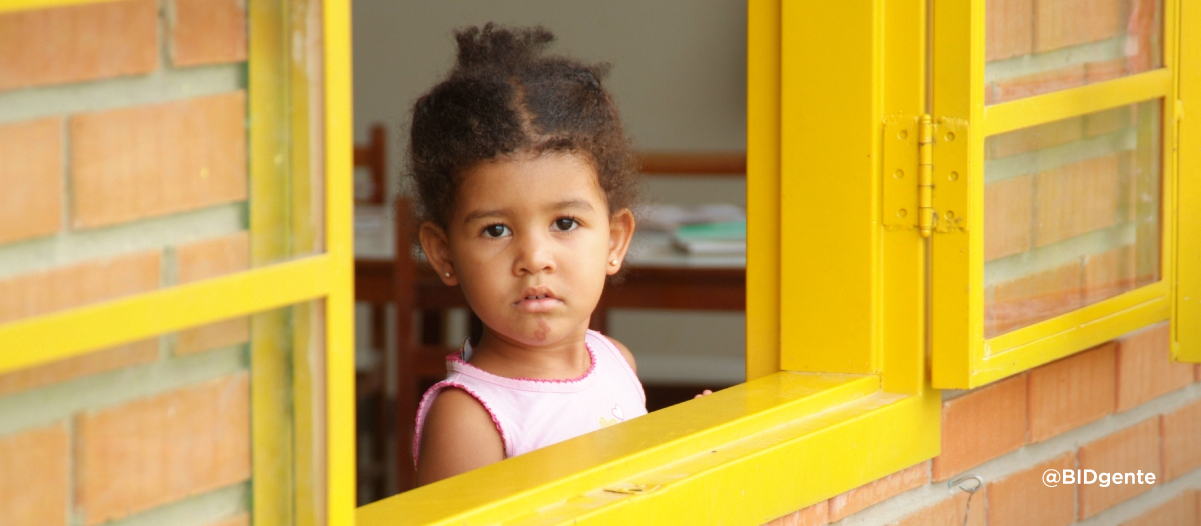Evidence-based science has shown the importance of parental programs to promote early child development like the Reach Up program from Jamaica. Even though the studies have demonstrated relevant effect sizes in overall childhood development, we still need to understand how to transfer and scale up those interventions across countries, especially now with the current pandemic, in a way that they can be adapted and implemented in all kinds of contexts.
From Jamaica to Brazil and the rest of the region
Importing an existing intervention is not an easy process and goes beyond the translation of materials. Survive and Thrive (S&T) in Brazil is a scaling up intervention based on the Reach Up program. Adaptation has been a continuous process that involves a lot of aspects. We will use this example to portray a process that could be adapted to different settings including communities under lockdown due to COVID-19 regulations.
Before the pandemic, we had started with a proof of concept phase, a small-scale impact evaluation and currently, the transition to scale phase. The adaptation process included the delivery strategy, the age-range of kids receiving the content, the culturalization of the materials and the frequency of exposition. If you are starting the process as COVID-19 is reaching communities, conversations and agreements on the design and adaptation can be done by virtual meetings and the production and distribution of materials should follow strict hygiene regulations.
Four steps to adapt Reach Up to other contexts, including locked down communities due to COVID-19
- Adapt the curriculum and other materials. Besides the translation and cultural adaptation of the curriculum, including Brazilian songs and other cultural traditions, we adapted the toy kit to the Brazilian culture. Even though we still used recycled materials, we developed more colorful and flashy toys, so that the mothers would like them and see them as toys and not as recycled waste.
- Add new components to cover the total length of the program. We had to add pregnancy, neonatal and 0-6 months components, since our program covers a longer period than the original Reach Up curriculum in order to align with the government program. The Reach Up group helped to extend the content from 0-6 months and we created the first week of life and neonatal health contents. We also created the pregnancy component, where mothers receive important health and child development information as well as positive parenting practices and replaced the activities (toys left at home for practice between the sessions) in the child module by action plans, related to the discussed subjects for the women to complete between sessions.
- Adapt Trainings. The training had to be adapted as well, not only in length but in content. Agents couldn’t be away from their units for two weeks. They were also overwhelmed by the content, so we decided to break it into 3 modules of 4 days, covering pregnancy and neonatal period: 0-12 months and 13-36 months.
- Deliver the program following strict COVID-19 regulations: In March 2020, the municipality stopped all field activities including home visits and group sessions in response to the COVID-19 crisis. In order to keep supporting our beneficiaries in these challenging times, we set up mobile phone-based support mechanisms. Following the same fortnightly schedule previously established, agents call each family by cell phone and provide tips on positive parenting practices and activities that do not require specific toys. During these calls, we also ask mothers about their and their children’s current health, tracking the prevalence of COVID-19 symptoms in this population.
Scaling up results in Brazil
In the initial impact evaluation, we tested different delivery strategies. We tried to build on the Brazilian existing home-visit based primary care model (Family Health Strategy) where a community-health agent visits vulnerable families in a monthly basis to provide health education and to check families’ health conditions. We adapted the Reach Up weekly visit content to a fortnightly visit curriculum.
Due to the burden of the existing health visits, this strategy did not show any impact. We also tested using a fully dedicated agent, with the same profile of the community health agent, to deliver the fortnightly intervention with relative success. We started testing a small group-meeting strategy, supported by the Inter-American Development Bank’s ECD Fund, where 8 to 10 caregivers and children attended to fortnightly meetings at the nearest social service unit, receiving the same content and methodology as the home-visit Reach Up curriculum. As mentioned above, this test was interrupted by the COVID-19 crisis and was replaced by phone calls.
S&T Brazil will provide important evidence-based knowledge about the adaptation of interventions and further modification during implementation at larger scale, that may be needed to overcome contextual barriers, to cope with government demands, or to maximize effectiveness, sustainability and quality. Do you know any program that was in the process to be taken to scale and was interrupted by COVID-19 lockdowns? Share their names in the comments section below or mention @BIDgente in Twitter.


Leave a Reply